Related Research Articles
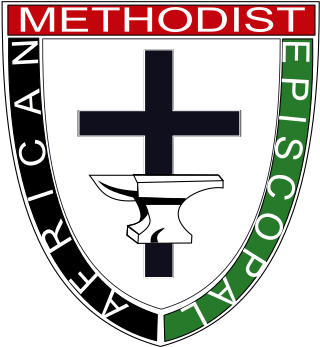
The African Methodist Episcopal Church, usually called the AME Church or AME, is a Methodist Black church. It adheres to Wesleyan-Arminian theology and has a connexional polity. The first independent Protestant denomination to be founded by Black people, AME welcomes and has members of all ethnicities.
Protestants in Myanmar make up 5% of that nation's population in 2023. Most Christians are from the minority ethnic groups such as Karen, Lisu, Kachin, Chin, and Lahu. An estimated 0.1% of the Bamar population is Christian.
Igreja Presbiteriana de Moçambique is one of the largest Protestant denominations of Mozambique.
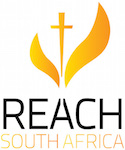
The Reformed Evangelical Anglican Church of South Africa (REACH-SA), known until 2013 as the Church of England in South Africa (CESA), is a Christian denomination in South Africa. It was constituted in 1938 as a federation of churches. It appointed its first bishop in 1955. It is an Anglican church and it relates closely to the Sydney Diocese of the Anglican Church of Australia, to which it is similar in that it sees itself as a bastion of the Reformation and particularly of reformed doctrine.
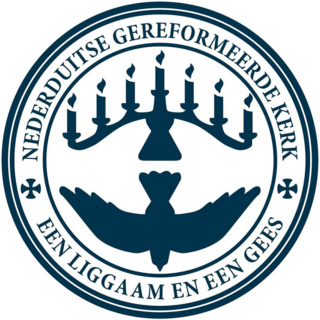
The Dutch Reformed Church is a Reformed Christian denomination in South Africa. It also has a presence in neighbouring countries, such as Namibia, Eswatini, and parts of Botswana, Zimbabwe and Zambia. In 2013 it claimed 1.1 million members and 1,602 ordained ministers in 1,158 congregations.

The Ethiopian Evangelical Church Mekane Yesus is a Lutheran denomination in Ethiopia. It is the largest member church of the Lutheran World Federation. It is a Lutheran denomination with some Pentecostal influence and one Presbyterian-leaning synod, with a large Pietistic following.

The Methodist Church of Southern Africa (MCSA) is a large Wesleyan Methodist denomination, with local churches across South Africa, Namibia, Botswana, Lesotho and Eswatini, and a more limited presence in Mozambique. It is a member church of the World Methodist Council.
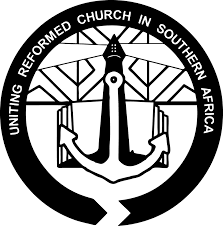
The Uniting Reformed Church in Southern Africa was formed by the union of the black and coloured Nederduits Gereformeerde Kerk mission churches.
The United Congregational Church of Southern Africa (UCCSA) is a prominent Christian denomination established in 1967, following the unification of various congregational movements within Southern Africa. Its origins can be traced back to the missionary work of the London Missionary Society in the Cape Colony in 1799. The UCCSA plays a significant role in the religious landscape of Southern Africa, with a membership of approximately 500,000. It maintains a notable presence in countries such as South Africa, Mozambique, Botswana, Zimbabwe, and Namibia. The UCCSA is recognized for its contributions to education and social justice in the region.

Protestantism in South Africa accounted for 73.2% of the population in 2010. Approximately 81% of South Africans are Christian and 5 out of 6 Christians are Protestant. Later censuses do not ask for citizens’ religious affiliations. Estimates in 2017 suggested that 62.5% of the population are Protestant.
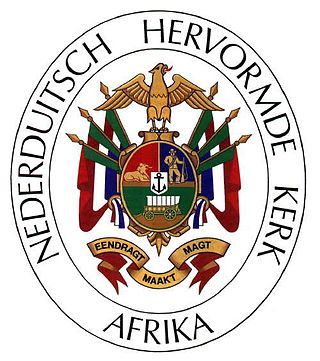
The Dutch Reformed Church in Africa is a Reformed Christian denomination based in South Africa. It also has congregations in Namibia, Botswana, Zambia and Zimbabwe. Along with the Dutch Reformed Church in South Africa (NGK) and the Reformed Churches in South Africa, the NHKA is one of the three Dutch Reformed sister churches of South Africa. The NHKA retains the old Nomenclature Nederduitsch, the word originally referring to the Dutch language. The word refers to the Low Saxon language today. The Dutch language remained the official language of the church until 1933 when the church started functioning almost exclusively in Afrikaans.

The Reformed Churches in South Africa is a Christian denomination in South Africa that was formed in 1859 in Rustenburg. Members of the church are sometimes referred to as Doppers.
The Presbyterian Church of the Philippines (PCP), officially The General Assembly of the Presbyterian Church of the Philippines, is a growing evangelical, Bible-based Reformed church in the Philippines. It was officially founded in 1987 and the General Assembly was organized in September 1996.
The Swaziland Reformed Church was founded in 1944 and become a congregation of the Dutch Reformed Church in Africa in 1967. Later the Swaziland Missionary Board was formed to coordinate the missionary work of the Reformed Church in Swaziland. In 1989 Swaziland become a Regional Synod of the denomination. In 1991 the Swaziland Reformed Church became independent and has 20 communities within which it is working. The church was a member of the Reformed Ecumenical Council and later became a member of the World Communion of Reformed Churches.

The Evangelical Congregational Church in Angola is a Reformed Christian denomination in Angola.
The Presbyterian Church of Africa was founded in 1898 by Rev. James Mzimba, who broke from the Church of Scotland. He was born in Ngquakai, and his father was a deacon in the Presbyterian Church. Mzimba become a pastor, and was ordained in 1875. He was sent to Scotland to the anniversary of the Free Church of Scotland, but later severed its ties with the denomination. In 1899 he founded his own independent Presbyterian church. He died in 1911. The first Synod was constituted in Alice, Cape Colony. Mzimba had a dispute with the Free Church of Scotland over land and over the use of money. The Presbyterian Church of Africa is a predominantly black church. It was a small group of churches with 2 presbyteries. The church grew steadily. It is one of the oldest independent churches in Africa.
The Reformed Churches in Namibia is a confessional Reformed church in Namibia. Reformed people come from Angola to Namibia in 1929. The Dorslandtrekkers were mostly Reformed people who had settled in Angola but later moved to Namibia. The Dorslandtrekkers were originally from Transvaal, South Africa, and migrated northwestward starting in 1874 in two large and one smaller group, starting the Humpata Reformed Church under the Rev. Jan Lion Cachet. Later in 1930 3 congregations were established. More farmers came and the church grew. Missionary work was started in 1969 under the Bushmans of the Gobabis region, Botswana. It has 2,757 members and 14 congregations, and adheres to the Apostles Creed, Nicene Creed, Heidelberg Catechism, Belgic Confession and the Canons of Dort.There's no women ordination. Official languages are Afrikaans, Bushman, Gobabis-Kung.
The Synod Central Africa is a regional governing body in the Dutch Reformed Church in South Africa in Zimbabwe. In 1895 3 congregations were established in what was then known as Rhodesia. The number of congregations increased rapidly, theses was part of the Cape Synod, later the Free State Synod and the Transvaal Synod. Finally the Dutch Reformed Church - Synod Central Africa become autonomous in 1957. It has 16 congregations, 41 house fellowships and 2,600 members. Official languages are English and Afrikaans. The Apostles Creed, Athanasian Creed, Canons of Dort, Heidelberg Catechism, Belgic Confession is generally accepted standards.

The South African Sendinggestig Museum was established in 1977 and is currently situated in the centre of Cape Town, Western Cape, South Africa. It is a province-aided museum which receives support from the Government of the Western Cape Province.
The Maranatha Reformed Church of Christ (MRCC) is a Christian Reformed denomination founded in 1923, in South Africa, by former members of the Free Church of Scotland, due to disputes relating to the administration of the sacraments.
References
- ↑ "Volkskerk van Afrika | Peoples Church of Africa". Volkskerk.co.za. Archived from the original on 2013-07-16. Retrieved 2013-09-07.
- ↑ "Address data base of Reformed churches and institutions". Reformiert-online.net. 1921-08-14. Retrieved 2013-09-07.
- ↑ "Congregations of Volkskerk van Afrika". Volkskerk.co.za. Archived from the original on 2013-11-28. Retrieved 2013-09-07.
- ↑ "About". Church2.brierrosemedia.com. Archived from the original on 2013-12-16. Retrieved 2013-09-07.
